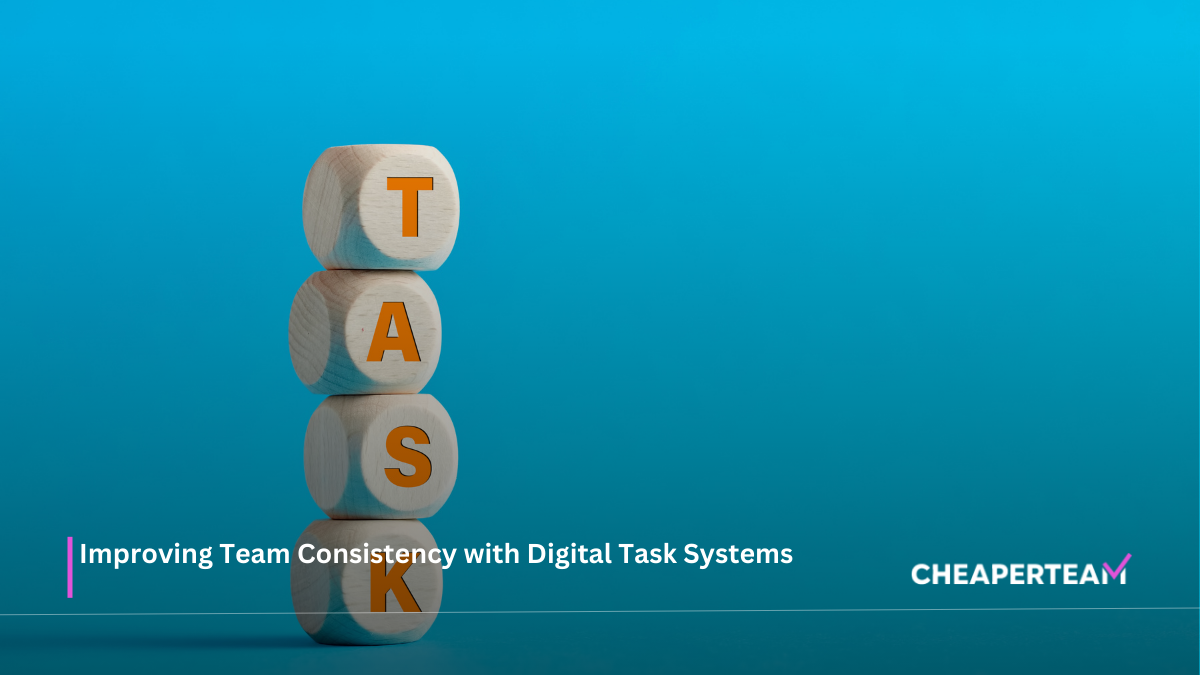Company culture is the heartbeat of every organization. It defines how teams interact, how decisions are made, and how employees feel about their work. But as remote work becomes the standard for modern businesses, maintaining a strong and unified company culture has become more challenging and more important than ever.
At CheaperTeam, we believe that company culture isn’t confined to a physical office. It’s built through shared values, effective communication, and consistent engagement. Whether your team members are across the street or across the globe, culture is what keeps them connected and motivated toward a common goal.
READ ALSO:
> Outsourcing Virtual Assistant: Streamlining Business Efficiency and Productivity
> 1 Business Outsourcing – 5 Signs Your Business is Ready for Outsourcing
> Why Outsourcing HR Services is Crucial for the Success of Your Business #1
🌍 What Company Culture Means in a Remote Setting
Company culture goes beyond perks or office events. It’s the collective mindset that shapes how people collaborate, solve problems, and represent your brand.
In traditional workplaces, culture often develops organically through in-person interactions. In remote environments, however, culture must be built intentionally.
For remote teams managed by CheaperTeam, culture is embedded in every process from onboarding to daily communication. It’s about creating a sense of belonging, even when the team is distributed worldwide.
When remote employees feel connected to the company’s values and mission, they’re more engaged, loyal, and productive.

💬 Why Company Culture Matters for Remote Teams
Some leaders assume that company culture only thrives in physical offices. However, remote culture can be just as strong if nurtured properly. Here’s why maintaining it is essential:
1️⃣ Employee Engagement
A positive culture keeps employees motivated and emotionally connected to their work. When people feel valued and included, they give their best effort, no matter where they are located.
2️⃣ Collaboration and Team Spirit
Remote employees who understand and embrace the company’s values collaborate more effectively. A shared culture fosters teamwork, trust, and communication across time zones.
3️⃣ Retention and Loyalty
Employees who align with the company culture are more likely to stay long-term. Building a remote-friendly culture reduces turnover and strengthens organizational stability.
4️⃣ Brand Reputation
A strong internal culture reflects externally. Clients and partners notice when a company’s team operates with enthusiasm, professionalism, and unity key traits that enhance the company’s reputation.
At CheaperTeam, we know that maintaining a healthy remote culture is the foundation for lasting success for both the team and the clients we serve.
🏗️ Building a Strong Culture for Remote Staff
Creating a connected and motivated remote workforce doesn’t happen by chance. It takes structure, consistency, and effort. Here’s how to make it work:
1️⃣ Define and Communicate Core Values
Start with clarity. Clearly define what your company stands for its vision, mission, and values. These core principles should guide every interaction, from hiring to performance reviews.
At CheaperTeam, our values of transparency, collaboration, and accountability guide our remote operations. Every team member knows what we stand for and how their work contributes to our larger purpose.
2️⃣ Prioritize Communication
Open communication is the backbone of remote culture. Use multiple channels such as video calls, team chats, and email to keep everyone connected.
Regular check-ins and virtual meetings ensure that no one feels isolated. Encourage team members to share updates, achievements, and challenges. This builds trust and strengthens relationships.
3️⃣ Recognize and Celebrate Achievements
Recognition fosters motivation. Celebrate milestones, both big and small from successful projects to personal achievements.
CheaperTeam encourages positive reinforcement across teams. A simple “thank you” or acknowledgment during a team call can make remote employees feel appreciated and seen.
4️⃣ Encourage Team Bonding
Social connection plays a major role in company culture. Create opportunities for team bonding through virtual coffee chats, team games, or casual check-ins.
These activities replicate the camaraderie found in physical offices and help strengthen emotional connections among remote workers.
5️⃣ Empower Autonomy and Trust
Remote work thrives on trust. Micromanaging destroys motivation, while empowerment fosters ownership. Give remote staff the freedom to manage their tasks while maintaining accountability through clear expectations.
At CheaperTeam, we trust our professionals to deliver high-quality results while supporting them with the resources they need to succeed.
6️⃣ Provide Consistent Feedback
Feedback promotes growth. Schedule regular performance reviews and one-on-one sessions to discuss progress, address challenges, and set future goals.
This continuous loop of communication reinforces commitment and ensures alignment with the company’s mission.
💡 Tools That Support a Strong Remote Culture
Technology plays a critical role in connecting remote teams. The right tools make it easier to communicate, collaborate, and maintain a sense of community.
Here are a few categories of tools that help support company culture in remote settings:
- Communication Tools: Slack, Microsoft Teams, or Google Chat keep conversations flowing in real time.
- Video Conferencing: Zoom and Google Meet allow face-to-face interactions, fostering stronger connections.
- Project Management: Asana, Trello, and ClickUp keep everyone aligned on goals and deadlines.
- Recognition Platforms: Tools like Bonusly or Kudos make it easy to publicly recognize and reward good work.
CheaperTeam leverages these tools to ensure our virtual assistants and remote professionals remain engaged, informed, and aligned with client goals.
🌱 Cultivating Inclusion and Belonging
A thriving culture requires inclusivity. Every team member should feel respected and valued, regardless of their location, background, or role.
To cultivate inclusion in remote teams:
- Encourage open discussions where everyone’s voice is heard.
- Be mindful of time zones when scheduling meetings.
- Promote diversity in leadership and decision making.
- Celebrate cultural differences through team activities or themed events.
At CheaperTeam, inclusivity is more than a principle it’s a daily practice. We create an environment where every employee feels connected and empowered to contribute their unique strengths.
📈 Measuring and Maintaining Cultural Health
Culture isn’t static it evolves as your company grows. Regularly measuring its health ensures that your team remains aligned and motivated.
Here are some ways to monitor cultural health in remote teams:
- Conduct employee surveys and feedback sessions.
- Track engagement metrics, such as participation in meetings and collaboration tools.
- Evaluate retention and satisfaction rates.
- Review how well your values are reflected in daily operations.
By collecting feedback and acting on it, leaders can strengthen company culture over time.
At CheaperTeam, we consistently assess engagement levels to ensure our teams remain happy, productive, and aligned with our mission.
🚀 How CheaperTeam Helps Businesses Maintain a Strong Remote Culture
Maintaining culture in remote environments takes strategy and structure and that’s where CheaperTeam excels.
We provide dedicated virtual assistants and support teams who work as an extension of your business, aligning with your company’s vision and values.
Our focus on communication, collaboration, and accountability helps businesses maintain their culture while enjoying the benefits of remote scalability.
Whether you’re managing a small distributed team or a growing global workforce, CheaperTeam ensures that your culture remains strong, consistent, and results-driven.
💬 FAQs About Maintaining Company Culture with Remote Staff
1: Can company culture really thrive without an office?
Yes. With clear communication, shared values, and intentional engagement, remote teams can build a strong and lasting culture.
2: What’s the biggest challenge in maintaining remote culture?
The main challenge is building connection and trust among team members who don’t see each other in person. Consistent communication solves this.
3: How can managers reinforce culture remotely?
By modeling the company’s values, recognizing achievements, and maintaining regular interaction with their teams.
4: What tools help build culture in remote teams?
Tools like Slack, Zoom, Asana, and recognition platforms foster collaboration, engagement, and transparency.
5: How does CheaperTeam promote culture with its remote teams?
CheaperTeam emphasizes open communication, team alignment, and recognition systems that keep remote professionals engaged and connected to their clients’ values.
CheaperTeam is a European based outsourcing company with headquarters centrally located in the heart of Manhattan, NY. Our objective is to provide high-quality, motivated employees while maintaining cost efficiency for businesses. We offer a boutique style of doing business, allowing flexibility in vetting and sourcing employees for various industries. Our staff comprises data entry specialists, medical billers, interior designers, back-office employees, and virtually any position that can be executed remotely.




